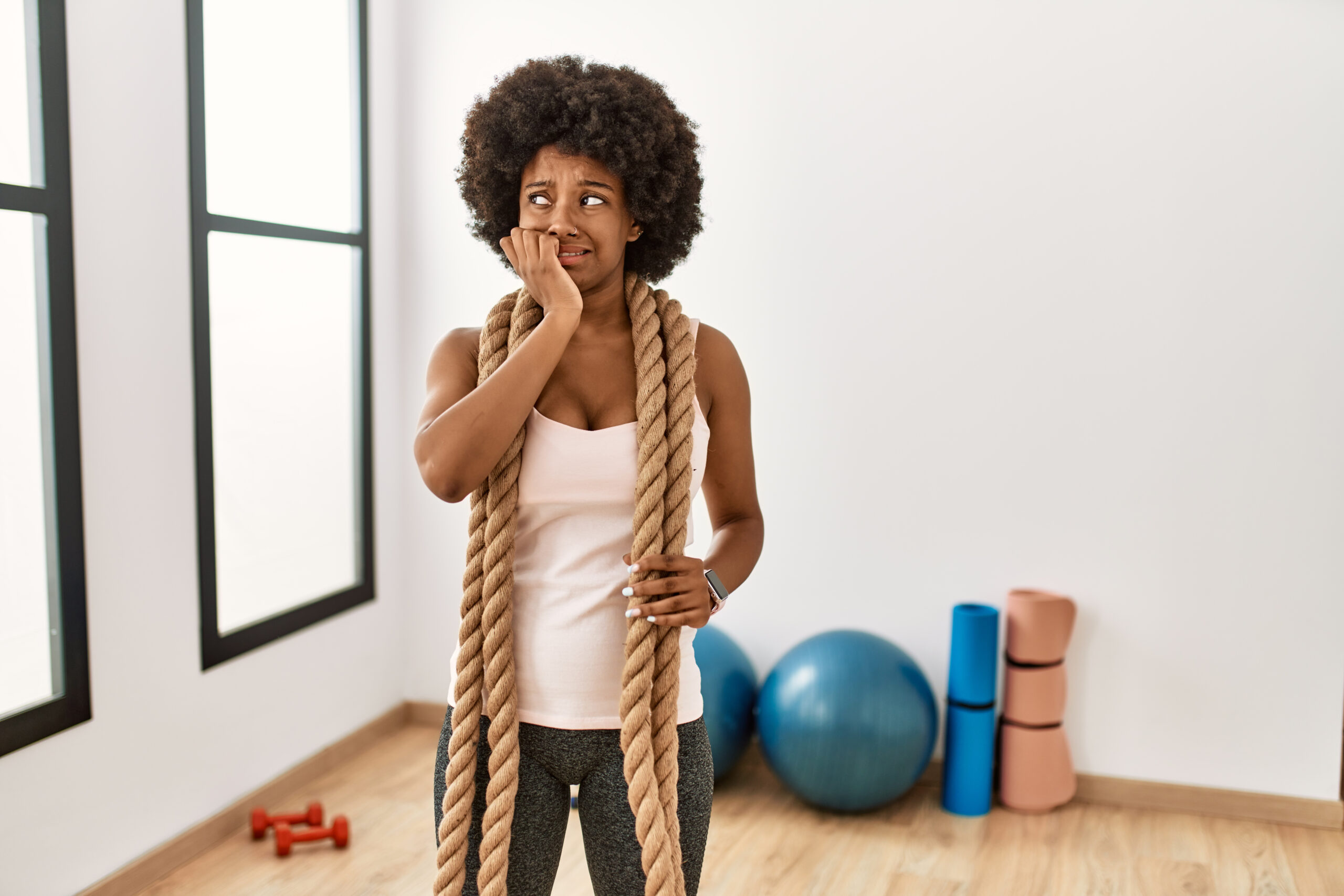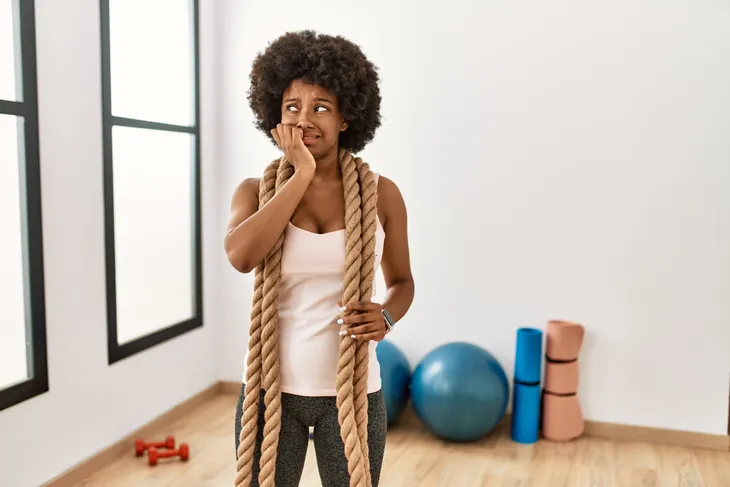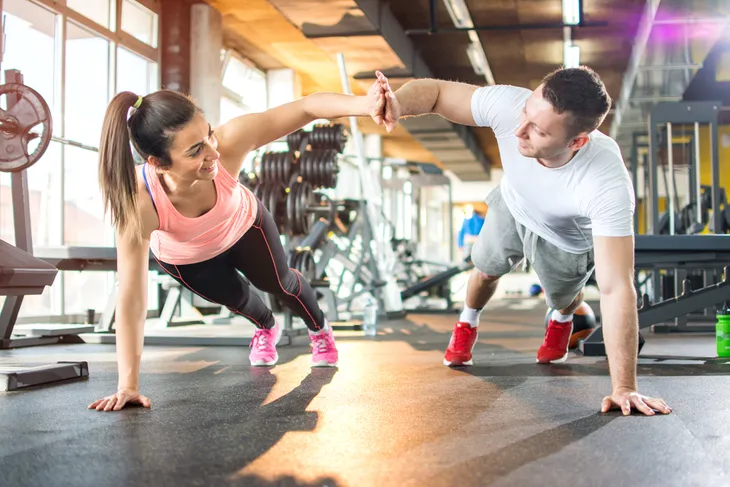Whether you’re new to the gym or returning after a long break, it can be an intimidating place. There’s even a term to describe the feeling of nervousness or anxiety that many people feel when they think about going: “gymtimidation”.
One survey found as many as half of Americans experienced “gymtimidation”, while another UK survey found one in four women reported feeling it.
There are several reasons why people might have some fear of going to the gym – including fear of being judged by other people, believing they might not be able to do certain exercises properly, and being insecure about how they compare to other gym-goers.
But at its core, one of the biggest reasons people may experience “gymtimidation” is because many see the gym as an unfamiliar or intimidating place. This is largely because they may feel uncertain about what they may encounter there, or because they might not know what they’re doing there.
But just because you’re facing a new situation doesn’t mean there aren’t a few simple things you can do to get over your intimidation – and most of it comes down to finding ways of removing that uncertainty.
Removing uncertainty
People tend to like predictability – so much so that uncertainty is linked with emotions like fear and anxiety. But if we can learn to minimise feelings of uncertainty, and push ourselves to encounter uncertain environments more often, we can make ourselves better able to deal with them.
Another reason people may feel nervous about heading to the gym for the first time is because they have low self-efficacy. Self-efficacy is our belief in our own skills and abilities, and whether we think we have the power to succeed in a particular situation. It plays a big role in almost everything we do as it’s key to human motivation.
When we don’t think we’ll be able to do something, it makes us less likely to want to try that thing in the first place. This may explain why many people feel intimidated about going to the gym.
But there are many ways you can work around these feelings – even before you make your first gym visit:
- Keep your workout simple to begin with and plan exercises that you can master quickly and will enjoy. It may also be worth including some alternative moves or exercises you can swap in if the gym is busy or a machine is in use.
- Look up the gym and equipment to familiarise yourself with the layout and the kind of equipment you might encounter. Finding sources or videos online that show you how the equipment works may also help quell any nerves you might have and better prepare you for what you might encounter before your first workout. Booking a one-to-one with a staff member or a personal trainer on your first day may also help.
- Find a training routine online or speak to a personal trainer to plan your workouts in advance. Not only will this help you know what machines or area of the gym you’ll need during your visit, it may also give you a chance to practise your moves ahead of time.
- Consider attending a beginner’s group exercise class. Being surrounded by other people who are in a similar place to you may help you feel more confident and less anxious – and it may even be beneficial for your mental health.
- Attend in off-peak periods at first. This may help you to develop your confidence and familiarity with the gym, and you may feel less nervous if there are fewer people around.
- Expect and accept anxiety and some nerves. It’s a perfectly normal part of the process of trying something new, and everyone feels it – even people who have been attending for a long time. One way to manage nerves is by practising mindfulness, a form of meditation that involves focusing on being present in the moment and any thoughts or feelings you may be having. This may help you to move past any anxiety you’re having.
Being prepared before heading to the gym may help you leave with a sense of accomplishment and success. In the end, this feeling will help you associate positive – rather than negative – feelings with the gym. This will mean you are more likely to stick with your commitment of going there.

![]()
This article is republished from The Conversation under a Creative Commons license. Read the original article.





